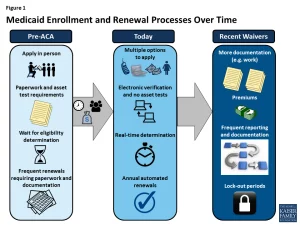Introduction
Access to healthcare is a fundamental right, and Medicaid plays a crucial role in ensuring that individuals and families have the necessary support. In this comprehensive guide, we delve into the various aspects of Medicaid, drawing on the expertise of Dr. Michelle Turner, a distinguished Public Health Policy Expert.
Understanding Medicaid

1. Medicaid Defined:
- Overview: A joint federal and state program providing health coverage for eligible low-income individuals and families.
2. Eligibility Criteria:
- Key Considerations: Eligibility is determined by factors such as income, family size, and disability status.
3. Coverage Benefits:
- Key Considerations: Medicaid covers a range of essential health services, including hospital stays, preventive care, prescription drugs, and more.
Dr. Michelle Turner’s Expert Insights

Dr. Turner emphasizes the significance of Medicaid in promoting health equity. “Medicaid is a vital safety net, ensuring that vulnerable populations have access to necessary healthcare services. Understanding eligibility and coverage details is essential for individuals to benefit from this crucial program,” she states.
Navigating Medicaid: Informative Tables
Medicaid Eligibility Criteria
| Factor | Eligibility Criteria |
|---|---|
| Income | Varies by state and household size; often a percentage of the federal poverty level (FPL). |
| Family Size | Larger families may have higher income thresholds for eligibility. |
| Disability Status | Individuals with disabilities may qualify based on their health condition. |
| Citizenship | U.S. citizenship or qualifying immigration status is typically required. |
Medicaid Coverage Benefits
| Service Category | Covered Services |
|---|---|
| Hospital Services | Inpatient and outpatient hospital care. |
| Doctor Visits | Primary and specialty care. |
| Prescription Drugs | Covered medications prescribed by a healthcare professional. |
| Preventive Services | Immunizations, screenings, and wellness visits. |
| Maternity and Pediatric Care | Prenatal care, childbirth, and pediatric check-ups. |
| Mental Health Services | Counseling, therapy, and inpatient services. |
Medicaid Application Process
| Step | Description |
|---|---|
| 1. Pre-screening | Use online tools or contact your state Medicaid office to check initial eligibility. |
| 2. Application Submission | Complete and submit the Medicaid application, which is often available online or in-person at local offices. |
| 3. Document Submission | Provide necessary documents, such as proof of income, citizenship, and other required information. |
| 4. Application Review | The state Medicaid agency reviews the application and informs the applicant of their eligibility status. |
| 5. Enrollment | Upon approval, the individual is enrolled in Medicaid, and coverage begins. |
Conclusion
Medicaid serves as a cornerstone in ensuring healthcare access for those who need it most. Dr. Michelle Turner’s insights, combined with our breakdown of eligibility, coverage benefits, and the application process, aim to empower individuals to navigate the Medicaid landscape confidently. Whether you are exploring your eligibility, understanding covered services, or applying for Medicaid, being well-informed ensures that you can access essential healthcare services and focus on your well-being.




